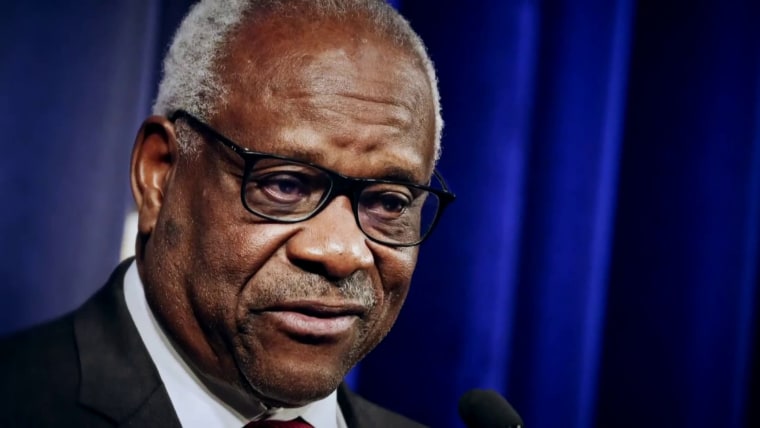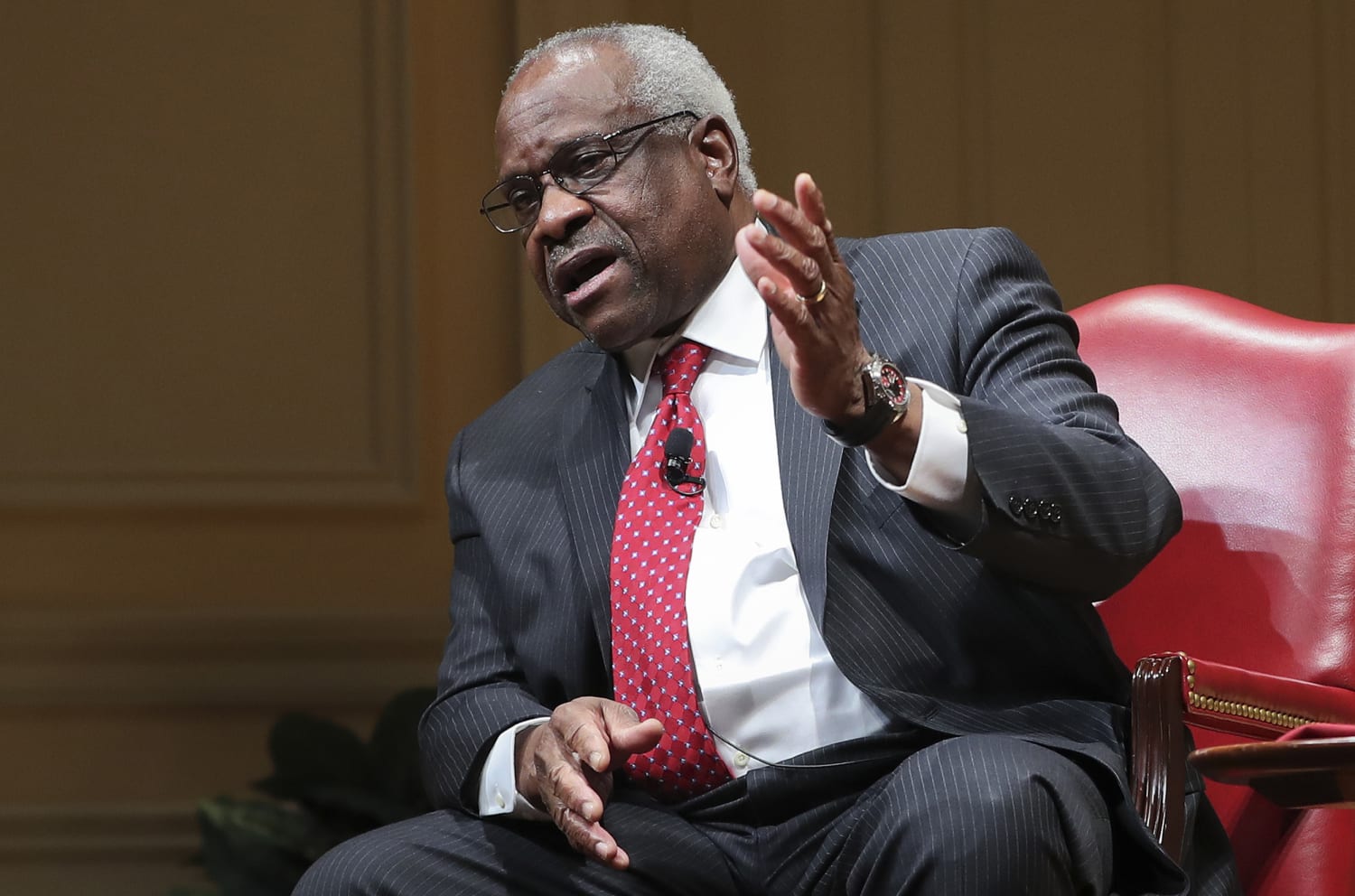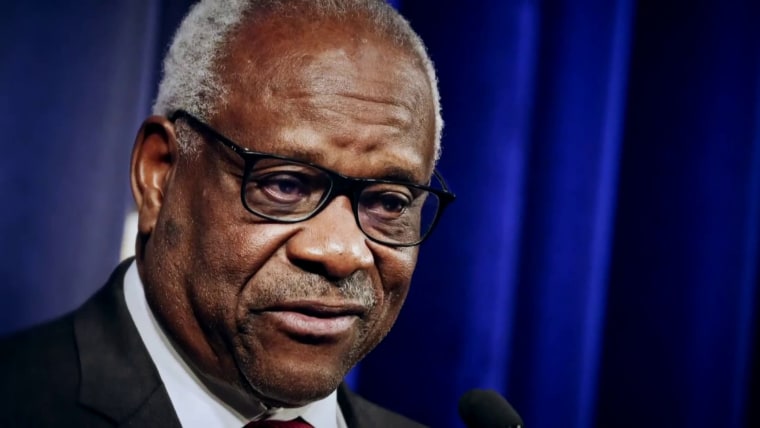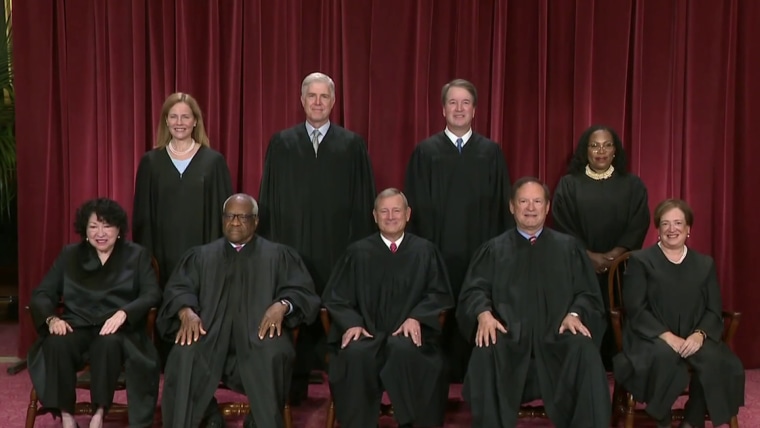WASHINGTON — In pushing back on recent claims that Justice Clarence Thomas is guilty of ethics lapses, Republicans and allies leaping to his defense have been quick to cite examples of liberal Supreme Court justices making similar misjudgments or nondisclosures.
At a Senate Judiciary Committee hearing on Tuesday, Republican senators pointed to the conduct of liberals like the late Justice Ruth Bader Ginsburg, now-retired Justice Stephen Breyer and serving justices Sonia Sotomayor, Elena Kagan and Ketanji Brown Jackson.
“I think the more you peel back the onion, the more you realize the ethics issues at the Supreme Court are not solely the purview of one justice. There are issues all nine justices have in upholding their ethical responsibilities,” said Gabe Roth, executive director of Fix the Court, which has called for ethics reform.
“Each of them has some ethical blind spots,” he added.
In highlighting how justices across the ideological spectrum have at times had their own ethics questioned, Republicans are in some ways making the case for why bipartisan ethics reform might be needed, advocates for reform say.
After Thursday’s revelations, Sen. Thom Tillis, R-N.C., told reporters in the Capitol that perception is a problem and suggested the Supreme Court should take action itself.
“If we’re honest with ourselves, at either end of the political spectrum, there are patterns of behavior here that may not abide. They didn’t violate a law, they didn’t violate any ethical standard, but they don’t really sit well with people who want the integrity of the Supreme Court to be really the gold standard,” he said.
“I do think that there’s work that the Supreme Court should do to address those perception problems,” he added.
Republican defenders of Thomas have been highlighting what Sen. Lindsey Graham, R-S.C., called at Tuesday’s hearing “a concentrated effort by the left to delegitimize the court,” which Republicans claim has been aided and abetted by media outlets like ProPublica that have focused largely on stories concerning Thomas.
ProPublica in April reported that Thomas repeatedly enjoyed expensive foreign vacations paid for by conservative billionaire Harlan Crow. On Thursday the nonprofit publication reported that Crow had also paid some of Thomas’ grand-nephew’s tuition at a private school. This came after another ProPublica report that Crow bought Thomas’ mother’s house, where she still lives.
Other stories reported elsewhere have concerned a real estate transaction involving conservative Justice Neil Gorsuch and the role of Chief Justice John Roberts’ wife, who is a law firm recruiter whose clients have business before the court. Both justices are conservative.
At Tuesday’s hearing, Graham noted the many trips that liberal justices have taken that were paid for by others.
Graham also pointed out that Kagan, the former dean of Harvard Law School, did not step aside from a case pending at the court challenge Harvard’s consideration of race in admissions. (Jackson, who served on the university’s board of overseers, did step aside.)
“I’m just saying there’s a very selective outrage here,” Graham said.
Sen. Ted Cruz, R-Texas, focused on Breyer, saying he had repeatedly traveled abroad while serving as a judge for the Pritzker Prize, a prominent architecture award that was founded by the prominent Chicago-based Democratic family of whom current Illinois Governor J.B. Pritzker is a member.
Sen. John Kennedy, R-La., weighed in by pointing out that the American Civil Liberties Union had once paid for Sotomayor to visit Puerto Rico when she was in her previous role as an appeals court judge. Kennedy also brought up omissions in Jackson’s financial disclosures, which she revised last year after leaving out information on consulting income her husband, a doctor, receives from medical malpractice cases.
Meanwhile, conservative media has started to publish stories taking aim at the liberal justices. DailyWire, for example, revived previously reported details about how Sotomayor did not recuse from cases in which Penguin Random House, publisher of her autobiography, was involved. The story did not note that conservative Justice Neil Gorsuch has the same publisher and did not step aside from a case that reached the court after he was appointed in 2017.
The advocacy group Fix the Court had in 2020 remarked on the fact that Sotomayor and Gorsuch had not stepped aside and recommended that they “reconsider their decision to hear cases in which their book publisher is a litigant.”
Conservative former appeals court judge Michael Luttig, who supports reform, said the Republican focus on liberal justices suggests an opportunity for bipartisan consensus.
“The hearing was bipartisan confirmation of the need for at least greater transparency from the Supreme Court, if not bipartisan confirmation of the need for ethical standards for the Supreme Court,” he said.
Legislation has been introduced that would require the Supreme Court to adopt a code of ethics similar to the one that binds lower court judges. Proposals have also been made to strengthen disclosure requirements.
Another former federal judge, Jeremy Fogel, who testified at the hearing, said a code of conduct would respond to concerns raised by lawmakers from both parties.
“It wouldn’t eliminate partisan disagreements about the actions of particular justices, but it would provide a common framework for assessing those actions,” he added.
Sen. Dick Durbin, D-Ill., who chairs the judiciary committee, said on Thursday that he believes that “all justices should be held to the same ethical standards as every other federal judge” and renewed calls for legislative action on a code of conduct.
The code that applies to lower courts requires judges to “avoid impropriety and the appearance of impropriety in all activities.” If judges breach the code, they can be investigated and reprimanded through a separate complaint process.
The justices say they follow the spirit of that code, introduced in 1973, but they have never formally adopted one of their own. There is also no procedure for complaints to be investigated short of the drastic step of impeachment.
Roberts declined to attend Tuesday’s hearing, suggesting in a letter that it would threaten the independence of the judiciary.
He attached a statement signed by all nine justices stressing their commitment to ethics principles, which was heavily criticized by ethics experts who said it did little to address recent concerns.
Source: | This article originally belongs to Nbcnews.com












